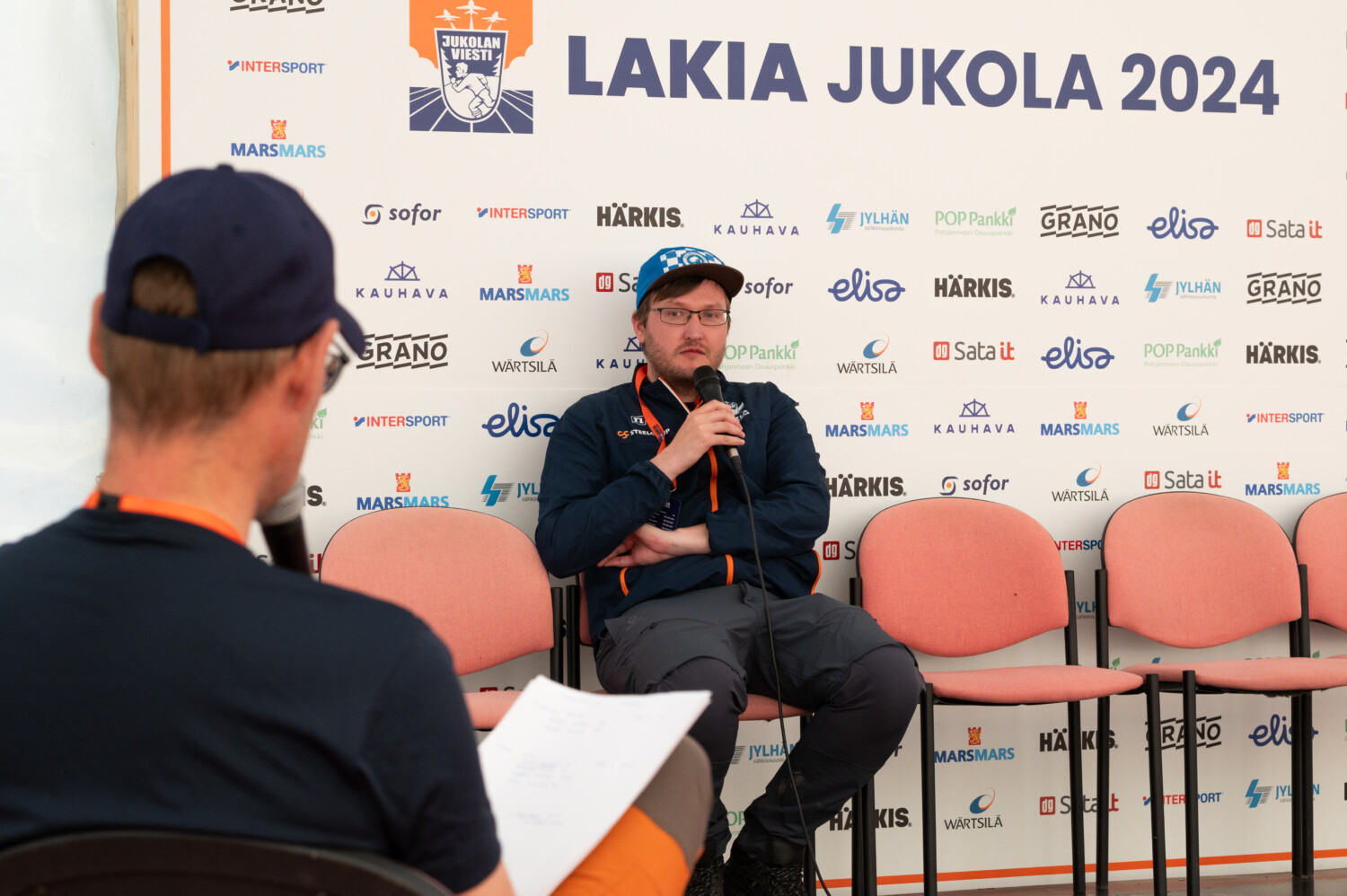
Photo: Taru Kunnari
Course setter Roope Näsi was interviewed at the press conference in Lakia-Jukola on Friday evening. In this story, you can read his last-minute thoughts before the relays.
How has it been to prepare Lakia-Jukola event?
“This has been prepared and planned for a long time. In 2016, we started to think seriously about applying for Jukola relay, so since then we have started making some kind of track drawings”, Näsi says.
At the press conference, the orienteers interviewed speculated that the terrain offers certain peculiarities and that the speeds vary. How right they are?
“Yes, there are different sections in courses. Really fast and slow. They were on the right track.”
What will Lakia-Jukola offer orienteers this year?
“It will offer different terrain types. I think some kind of surprises can be experienced by athletes there. I see the role of a course setter as being like a party organizer or master of ceremonies. Course setter tries to make a memorable event for runners and at the same time make it interesting for the media to follow.”
Roope Näsi, you have previously said that you have had certain goals in track planning. What are they?
“I have tried to make as interesting courses as possible in this terrain for both top orienteers and other thousands of participants. I have also tried to make each leg interesting so that every orienteer has sections where different choices and solutions can be made. Every leg counts. If the orienteer has strength and confidence, it is possible to make different choices on the courses.”
What kind of Jukola and Venla relay do orienteers expect?
“I’ve looked at some of the speculations and I think there’s been good preparation for them. Still, I think rhythm is very important. Orienteers need to understand that in some parts of the terrain you can go running first and in other parts you have to do skill-based orienteering.”
There is exceptionally little climb on the courses, but Lakia-Jukola is still not expected to become the fastest Jukola relay in history. This also suggests that the speed varies. Roope Näsi agrees.
“A varying Jukola is expected. The terrain is also in a pretty fast running condition. The bare rocks are fast and the swamps are not very wet. You can go fast when you have the chance.”
Where do you think the Jukola relay and the Venla relay will find their winners?
“I have tried to create places for each courses where moves can be made. It can happen anywhere. Of course, I hope that this will happen at the final stage.”
